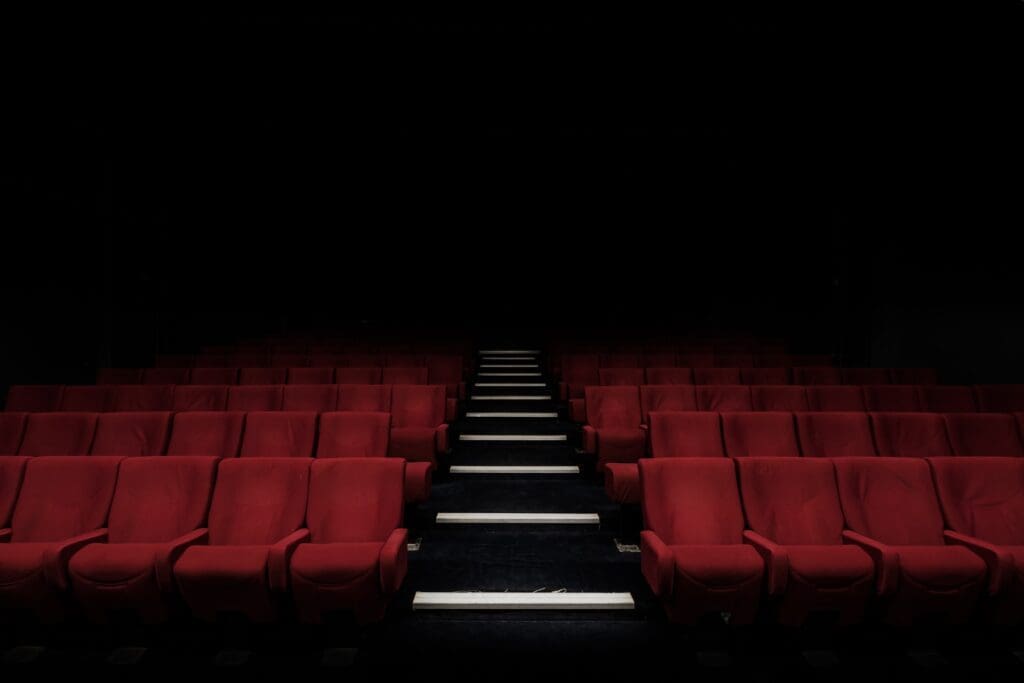Whilst our love of the movies has far from faltered in the last century, with media-on-demand with the click of a button, it’s easy to forget about the classics and timeless pieces of cinema that shaped Hollywood. This guide looks at some of the most famous and iconic film directors from the last two centuries and now – renegades who challenged the established system of their day and those who continue to do so – renowned for their maverick outlook.
Fritz Lang (1890-1976)
The Austrian-German director Fritz Lang was one of the most influential directors of black and white cinema, he was labelled the “Master of Darkness” by the British Film Institute. He helped shape and pioneer genres such as film noir, sci-fi and serial killer movies. Fritz Lang is widely known for his German expressionist science-fiction film Metropolis (1927). Set in the year 2000, this classic film addresses the political and economic issues faced in Germany at the time, as well as a warning for the future.
Well into his career, Lang directed three western films too. Other films worth mentioning are: You Only Live Once, Fury, House by the River and While the City Sleeps.
Alfred Hitchcock (1899-1980)
Psycho, The Birds, Strangers on a Train, North by Northwest, Vertigo – the list goes on. Known as the master of suspense, Hitchcock’s films were an icon of the time, and still continue to shock audiences nowadays.
“Mystery is when the spectator knows less than the characters in the movie. Suspense is when the spectator knows more than the characters in the movie.”
Hitchcock’s unique approach to cinema was a turn of the times, outlandish and daring, it was completely new.
Orson Welles (1915-1985)
“Rosebud” comes to mind when George Orsen Welles is mentioned – the genius responsible for the highly controversial and timeless Citizen Kane (1941). Welles pioneered the use of deep-focus cinematography, which involved presenting objects in a shot in sharp detail – further to this he incorporated low angle shots and told stories from multiple points of view. He is considered one of the most influential directors of all time.
Stanley Kubrick (1928-1999)
Dubbed one of the most fascinating directors of the latter half of the 20th century, Stanley Kubrick is responsible for the iconic films; 2001: A Space Odyssey, The Shining, and A Clockwork Orange.
Kubrick broke through with the 1964 classic: Dr. Strangelove Or: How I Learned to Stop Worrying and Love the Bomb, the subject itself is a serious matter, however, with the right casting and direction this is often cited as the finest political satire ever made.
Clint Eastwood (1930-Present)
You probably think of Clint Eastwood as being the cowboy from all the western films, and you’d be correct in doing so. However, throughout his extensive acting career, Clint Eastwood directed over 35 films, too. With the thriller Play Misty For Me, Eastwood made his debut venture into directing in 1971, earning him newfound critical respect for his clear directorial skills.
Clint’s most recent film, The Mule (2018) directed and produced by himself and a team, sees him acting in it too. It’s fair to say that Clint has and continues to make an impact in the film industry through past and present!
Ridley Scott (1937-Present)
One of modern cinema’s most well-known and productive filmmakers, Ridley Scott is responsible for the first Alien movie in 1979, the sci-fi classic Blade Runner which at the time was dubbed a commercial failure, it is now acknowledged as one of the most influential science fiction films of all time. On top of that, he helped produce the enduring classic Thelma and Louise.
Martin Scorsese (1942-Present)
Still making movies well into his seventies, Martin Scorsese is responsible for some of the most intriguing films in Hollywood history. His body of work enters the complexities of male relationships, and he is known for classic gangsta movies such as Taxi Driver, Goodfellas, Gangs of New York and more recently, The Wolf of Wall Street and The Irishman.
Steven Spielberg (1946-Present)
Probably one of the most well-known names in cinema history, Spielberg set the horror tone in the latter half of the twentieth century with the film Jaws – a hunt for the great man-eating shark. In which, Hitchcock’s horror film about man vs. nature The Birds (1963) served as a major source of inspiration. Following this, he went on to create E.T., which won four Oscars – viewed by audiences across the globe.
In 1993, Spielberg directed Schindler’s List, which follows the true story of Oskar Schindler, a factory owner who saved 1,200 Jews from World War II concentration camps; the film won seven Oscars. Other notable achievements include; West Side Story, Jurassic Park and Saving Private Ryan.
James Cameron (1954-Present)
Known for his wide-ranging vision and groundbreaking special effects, James Cameron rose to fame after his highest-grossing and most beloved movie of all time, Titanic, which won eleven Oscars including Best Picture – which is one of the highest recorded wins in Oscar history. In 2003, Cameron went on to make a documentary called The Ghosts of the Abyss, where he visits the Titanic’s ultimate resting place to learn more about the inspiration for his 1997 film. Other notable blockbuster films include Avatar and The Terminator series.
Quentin Tarantino (1963-Present)
Nonlinear plots, dark comedy, stylised violence, lengthy conversation, ensemble casts, pop culture references, alternate history, and neo-noir are all hallmarks of a Quentin Tarantino film. His most notable films include Jackie Brown, Reservoir Dogs, Pulp Fiction, Kill Bill Vol 1, 2 & 3 and more.
If you’ve ever seen a Tarantino film, you’ll have noticed the bold punchy colour palette. His most recent movie ‘Once Upon a Time in Hollywood’ was the director’s 9th triumph. He’s claimed in interviews that he won’t do more than ten films, so keep an eye on this director.
Wes Anderson (1969-Present)
The Life Aquatic, Moonrise Kingdom, Fantastic Mr Fox, The Grand Budapest Hotel and more recently, The French Dispatch. Known for his incredible casting, and colour palette, it’s easy to tell a Wes Anderson film. His use of symmetry is fashioned throughout his work and is often teamed up with unique casting outfits too. Set to a quirky and classic soundtrack, Wes’ films employ a clever blend of sarcastic comedy and deep melancholy – when you’re watching one of his numerous eccentric masterpieces, keep an eye out for these features.
Christopher Nolan (1970-Present)
Christopher Nolan’s films have been described as psychologically demanding, with many audiences left needing clarification, or even, to re-watch and analyse what they have witnessed. His debut feature was the ultra-low-budget independent film Following, Nolan established himself with Memento but it was his blockbuster Batman Begins, a new take on a long-defunct film franchise, in 2005 that catapulted him into Hollywood’s elite tier.
Over the previous two decades, Nolan’s sophisticated, time-bending renovation of film noir clichés has turned heads in Hollywood. Some notable features include Tenet, The Dark Knight Trilogy, Inception, and Interstellar.
Film reviews and more by Ready Steady Cut
If you consider yourself a bit of a movie buff, then you’ll want to check out the rest of the Ready Steady Cut site, we specialise in detailed reviews of your favourite (or least favourite) movies and TV shows. Our reviews are up-to-date and in line with the latest viewer trends, so be sure to take a look around, maybe you’ll find your next viewing inspiration.



